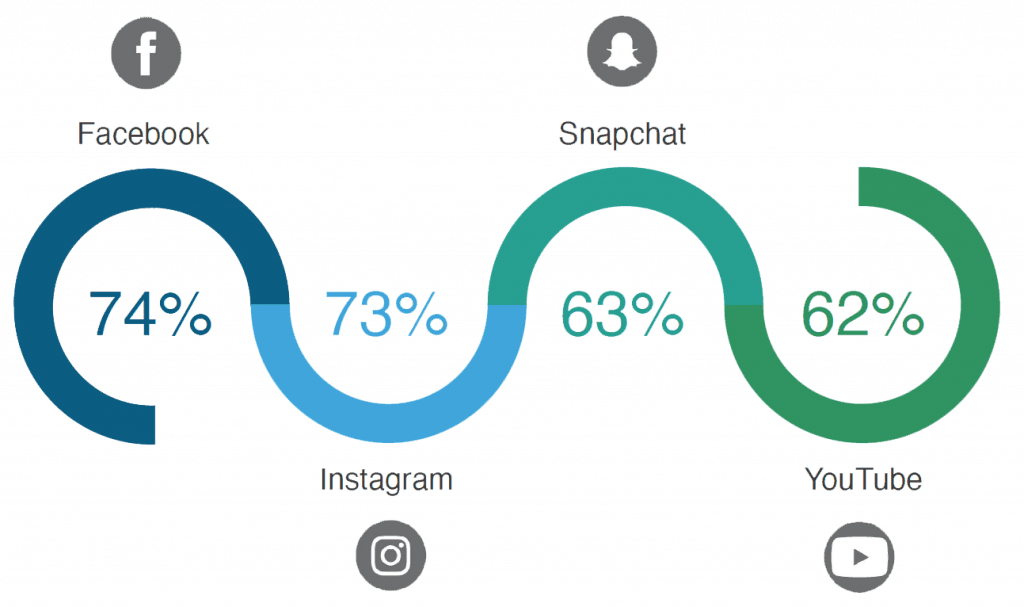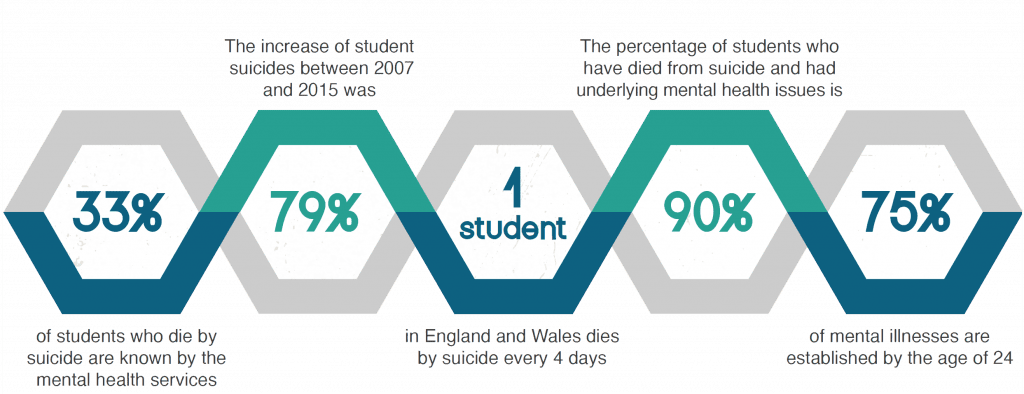Why today’s students suffer with mental health


“If you need me – you know where I am” - how many people genuinely mean it? Sure, it sounds somewhat reassuring to a student, but in today’s world, it is counterintuitive to how young people communicate.
There’s no denying that the shift in young people’s attention spans has been widely attributed to the advance of technology and the rise of social media. In today’s world, everyone you have ever known or met is never more than a post, like or comment away.
Yes – social media can be a great platform to build community. It’s a brilliant way of staying connected but it also has a dark side.
In 2019, these were the amount of Gen Z adults (aged 18-23 years olds) who use social media.


However, research proves the negative impact social media has on wellbeing. A survey of almost 1,500 14- to 24-year-olds found that Instagram has the most negative impact on young people’s wellbeing and described it of “deepening young people’s feelings of inadequacy and anxiety”.
People are comparing themselves to one another. Students want to live the perfect life, but if this isn’t achieved, it can be hard for them to cope.
It’s not just social media that’s the issue. Transitioning to university is life-changing and comes with challenges such as moving away from home, making new friends, managing finances, adjusting to learning demands, meeting deadlines and developing a new social identity. In addition to this, there are high expectations and pressure to do well and be successful.
All of these challenges, in addition to living the “perfect” life, may answer the “why” question. Life isn’t easy for today’s student. In fact, sadly the numbers speak for themselves.


Universities have a big opportunity to support students during these changes. By recording concerns, identifying issues and reporting incidents on a university-wide basis, universities could save a student’s life.

